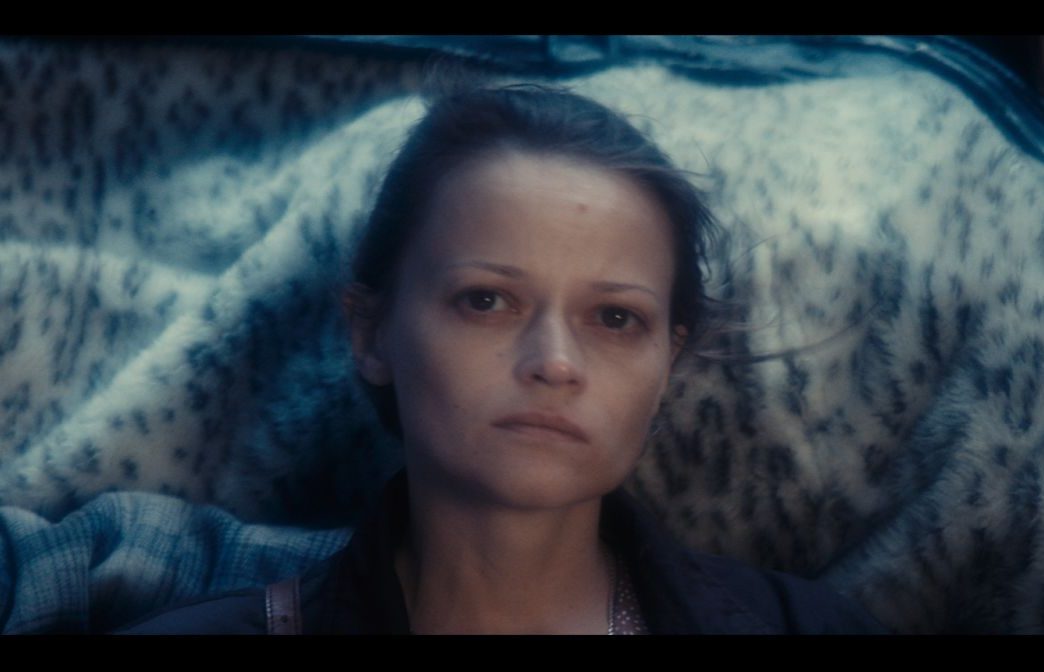Back in 2010, Ukranian director Sergei Loznitsa proved himself as a genuine talent with the shocking debut feature My Joy but his 2012 follow-up In the Fog was a disappointing foray into the war genre. After several years focusing on documentaries, he has returned to fictional territory with another unpleasant but impressive piece, a loose adaptation of Dostoevsky’s short, A Gentle Creature.
The eponymous gentle creature is a woman who lives in a quiet village in Russia. Her husband is serving a prison sentence for committing a murder and one day she returns home to discover that a parcel she sent has been returned.
Determined to work out the motives for such an occurrence, she sets off to the Siberian prison to discover the truth, in spite of the potential dangers faced and the moments of lawlessness she encounters along the way.
A nominee for the Palme d’Or at Cannes last year, this is Loznitsa continuing his damning criticisms of the Russia of today, a similar method that is located in the works of his contemporary Andrei Zvyagintstev. Unsurprisingly, despite being filmed in Russian, this received no funding from Russia and was made thanks to a co-production involving France, the Netherlands, Lithuania and Germany.
The result is an impressive but deeply troubling achievement, depicting this woman’s journey which gradually gets more uncomfortable, leading to an unpredictable finale which mixes surrealism with genuinely disturbing behaviour.
The lead performer Vasilina Makovtseva crafts a solid performance as the nameless individual in what is a largely mute performance, maintaining the same emotionless expression for a large part. Her journey sends her via differing vehicles to various locations which provide various aspects of despicability and depraved behaviour.
In one scene which mashes dark humour with a chilling reality, she finds herself in a bar where the patrons proceed to play Spin the Bottle with those selected removing their clothes when it stops in their direction. While the patrons take joy in this, our heroine observes without interest. When the bottle stops deliberately on her, her attempts to leave are rebuffed and she is therefore forced to take part, the scene cutting as she removes her scarf.
Following that, the character is seen walking away in the outside at night, only for a figure to stand and watch her as she walks by. Though nothing harmful is depicted in this short scene, the shot is arguably the most frightening moment in a film filled with such moments. It represents just how vulnerable this woman is and exactly how unpredictable and fearful the areas she goes to are.
The locations are often grimy, much in contrast to the sunny village we see at the start and physical violence is sometimes shown as background detail with reaction suggesting this is the norm.
In a bravura shot atypical of Loznitsa’s penchant for long takes, the woman is spoken to by police officers, while outside in full view, a character is beaten up with the officers deliberately ignorant of the situation.
Lawlessness and corruption are more than evident in this film, as was the case in the ending to his My Joy. The ending in this work is just as terrifying, taking the viewer into distressing territory which clearly depicts just how low society has become with reference to its law enforcement. The final shot of the film though leaves one scratching their head, uncertain of whether this is a sign of things to come, or something different, for better or worse.
With help from the performance of Makovtseva, Loznitsa has returned to form with a harrowing yet detailed account of Russia the way he sees it that may just warrant a repeat viewing.
